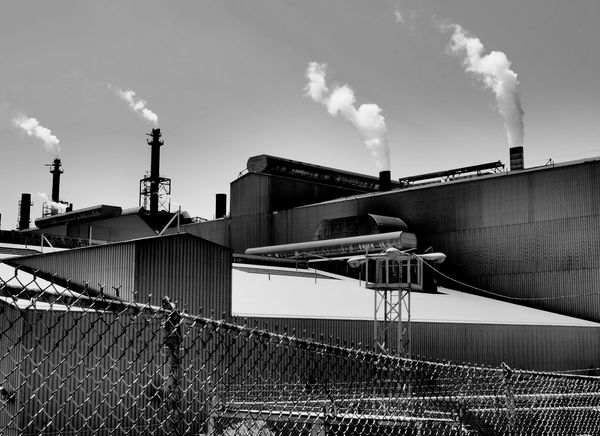Size matters
Dec 5, 2018 11:55:45 #
Lol! If there was an emoji for shaking my head, I’d use it in this instance. You are unbelievable, you are worse than I thought.
So, AA Jr, how come you are using a car, instead of a horse? And why isn’t there a V8 under the hood of that vehicle? How come you buy meat that someone else raised artificially, instead of you killing it in nature? I could go on all day, pointing out what you are doing wrong.
I will continue to call you a troll. How immature and narcissistic you have to be to whine on a photography forum to a bunch of mostly old men who use the very cameras that you think are inferior, because LIFE MOVED ON. If you don’t like it, change it. What good does it do to complain about it on a forum?
Hey Bipod, maybe your secret wish is to find a community where members would consider you the last great master?
Am I guessing right, that you also think that the iPhone isn’t the right phone to make calls with? Or that everyone is wrong to use electricity at night instead of burning a candle?
If you want to sell your idea, prove your point. Like posting a picture that is not possible with smaller sensors. Prove it. Because your opinion isn’t anymore special than any one else’s.
So, AA Jr, how come you are using a car, instead of a horse? And why isn’t there a V8 under the hood of that vehicle? How come you buy meat that someone else raised artificially, instead of you killing it in nature? I could go on all day, pointing out what you are doing wrong.
I will continue to call you a troll. How immature and narcissistic you have to be to whine on a photography forum to a bunch of mostly old men who use the very cameras that you think are inferior, because LIFE MOVED ON. If you don’t like it, change it. What good does it do to complain about it on a forum?
Hey Bipod, maybe your secret wish is to find a community where members would consider you the last great master?
Am I guessing right, that you also think that the iPhone isn’t the right phone to make calls with? Or that everyone is wrong to use electricity at night instead of burning a candle?
If you want to sell your idea, prove your point. Like posting a picture that is not possible with smaller sensors. Prove it. Because your opinion isn’t anymore special than any one else’s.
Dec 5, 2018 12:28:05 #
Dec 5, 2018 12:35:41 #
apples and oranges, all things being equal, a FF sensor of 36 meg will do better than a 24 megapixel crop sensor. But mostly it doesn't matter. A dull beautifully crafted photograph is still a dull picture. Bipod seems reluctant to share his dull photographs, his loss as it would add immeasurably to his credibility.
Dec 5, 2018 12:37:24 #
Flickwet wrote:
Apples and oranges, all things being equal, a FF sensor of 36 meg will do better than a 24 megapixel crop sensor, Duh. But mostly it doesn't matter so much. A dull beautifully crafted photograph is still a dull picture. Bipod seems reluctant to share his perhaps dull photographs, everybody's loss as it would add immeasurably to his credibility.
Dec 5, 2018 13:13:29 #
Flickwet wrote:
apples and oranges, all things being equal, a FF sensor of 36 meg will do better than a 24 megapixel crop sensor. But mostly it doesn't matter. A dull beautifully crafted photograph is still a dull picture. Bipod seems reluctant to share his dull photographs, his loss as it would add immeasurably to his credibility.

Like some say, talk is cheap.
Dec 5, 2018 15:26:57 #
Flickwet wrote:
apples and oranges, all things being equal, a FF sensor of 36 meg will do better than a 24 megapixel crop sensor.
Comparing a micro four thirds camera to a huge single-digit Canon or Nikon is more like comparing apples and pumpkins.
No pumpkins in my lunch box!
Dec 5, 2018 17:37:56 #
Bipod wrote:
...........
And in most photography, not being able to
tell the scale of the subject or where the light
is coming from are considered flaws. ............
And in most photography, not being able to
tell the scale of the subject or where the light
is coming from are considered flaws. ............
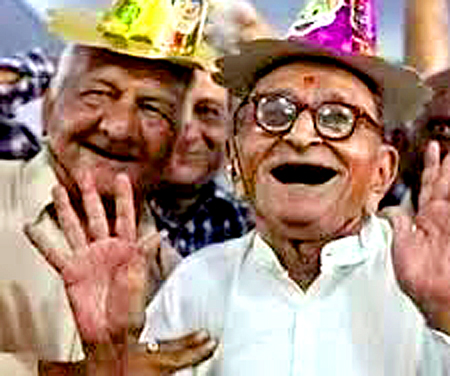


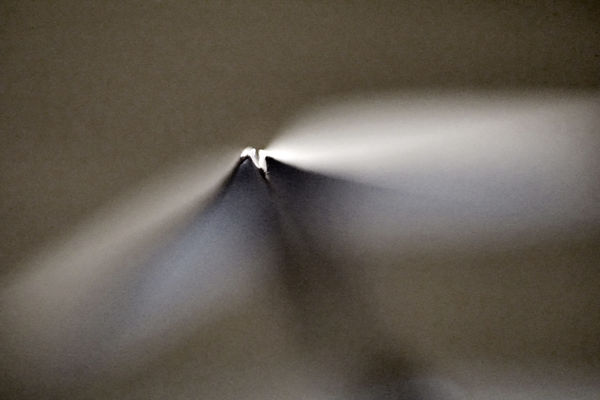


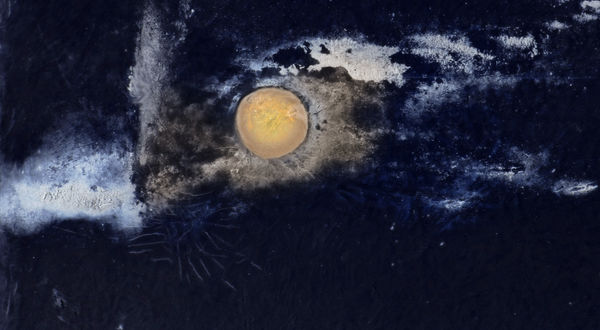
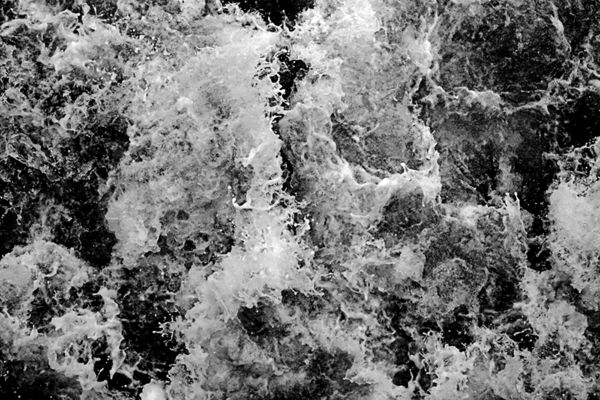
Dec 5, 2018 18:14:25 #
Thanks, UserID. Those images (except the first one)
are great illustrations of my point.
The could be excellent examples of photomicrography:
very well-prepared slide specimens.
And thanks for the photo of your birthday party!
are great illustrations of my point.
The could be excellent examples of photomicrography:
very well-prepared slide specimens.
And thanks for the photo of your birthday party!
Dec 5, 2018 20:46:42 #
tdekany wrote:
Show one of your examples. You seem to think that you are a great photographer based on your posts. So let’s see an example that the rest of us could not replicate.
False. I have never made any such claims, and I have posted hundreds of examples.
You continue to make ad hominem arguments, tdekany. It is becoming tiresome.
Please take your playground taunts to the playground, not UHH.
Dec 5, 2018 21:02:11 #
Bipod wrote:
False. I have never made any such claims, and I have posted hundreds of examples.
You continue to make ad hominem arguments, tdekany. It is becoming tiresome.
Please take your playground taunts to the playground, not UHH.
You continue to make ad hominem arguments, tdekany. It is becoming tiresome.
Please take your playground taunts to the playground, not UHH.
Nobody likes to be called out on their BS, but you are so full of it. You have started 9 threads, yet you claim hundreds of examples? Where?
What is getting really tiresome are your absurd claims, like using 35mm size sensor systems are the wrong gear for landscape. Do you enjoy people laughing at you?
Dec 5, 2018 21:08:01 #
Strodav wrote:
You post proves it - just trolling. br br I'll ju... (show quote)
Thanks for the resume, Strodav. I am a retired VP of Engineering -- not that it matters.
Arguments stand or fall on their own merits, not who says them. Facts are facts.
Disagreeing with the majority isn't "trolling" -- or any other abusive term you care
to apply to me. Now, how about we discuuss photograph instaed of hurling mud?
There is absolutely no question that carefully engineered digital optical systems can be wonderful.
Astronomical telescopes are a great example--the camera in the James Webb space telescope for example.
But consumer cameras are an entirely different matter.. Even high-end DSLRs now consumer products.
Right now, the R&D focus is on making cameras lighter, smaller and cheaper to manufacture.
Morevoer, consumer cameras now are all miniature format or subminiature format. Digital has made
medium format cameras--which once dominated the consumer market--very expensive. And large format
digital cameras do not exist except in astronomical telescopes and spy satillites.
Can you replace a 8" x 10" film frame with a 24 mm x 36 mm digital sensor without loosing resolution
and depth-of-field? Optics says it's impossible.
I realize your speciality isn't optics, neither is mine. But I hope you will acknowlege this fact.
Dec 5, 2018 21:09:46 #
Dec 5, 2018 21:14:42 #
Dec 5, 2018 21:42:33 #
Bipod wrote:
False. I have never made any such claims, and I have posted hundreds of examples.
You continue to make ad hominem arguments, tdekany. It is becoming tiresome.
Please take your playground taunts to the playground, not UHH.
You continue to make ad hominem arguments, tdekany. It is becoming tiresome.
Please take your playground taunts to the playground, not UHH.
So let’s see: first you accused me of working for a camera company. That’s a huge LOL (paranoia)
You have never posted one single image or a link to an image, yet you just claimed that you had posted hundreds. (Liar)
Lastly, like every narcissistic type I have seen on photo forums, they never admit that they are wrong, never address the issue when they are wrong or ever apologize. I could go on, but what for, you even upset Linda From Maine and that is a first I have ever seen happen.
So what were you trying to say?
Dec 5, 2018 22:16:27 #
Bipod wrote:
Sure, the right tool for the job! So how come th... (show quote)
Thanks for the compliment about the photo I posted.
I won't be entering it in a contest because I used it in a travel story at work.
I find some of what you posted to be interesting. I agree with some of the things you say, but not with others.
When I said the right tool for the job, that's exactly what I meant. I own a Nikon D5 because I shoot sports for a living. It's the right tool for the job.
I take two or three backpacking trips each year, that's what I do with my vacation time. I chose hikes because of the difficulty of the hike, the quality of the scenery, and because of the difference in terrain for previous hikes. I do my best to come back with a photo or photos that represent the hike and that are taken in places that most people are unable to get to. I then print a photo as a 20x30 poster that I hang on my wall. The photo that you saw will be one of those photos. It will be on my wall for probably two or three years before it finally gets replaced with a photo from a different hike. I agree that photos of slot canyons are becoming a bit of a cliche. Go online and you can find 100 different photos of antelope canyon that look virtually identical that are taken by different people. If my photo is a cliche that's the way it goes. To me it serves as both a memory of a great hike, and is a representation of some of the beauty in nature.
Now to address some of what you said. I agree that if you want to use an alternative to digital currently choices are limited and you may indeed have trouble finding parts, or may have to do repairs on your own. That's a shame, but that's the way things are. That's the way things have always been. I have shot with lots of different cameras from pinhole cameras to a 4x5 view camera that I made myself. I don't have it anymore because I sold it when I switched to digital. It was the logical choice because of my job.
Where I take issue with what you have said is concerning dodging and burning as opposed to using photoshop. When I was using a darkroom I had to make test prints and spent hours working on a print before it looked like I wanted. There were costs for chemicals and paper. Now I can get the results I want with no costs until I'm ready to print. Dodging and burning is absolutely comparable to working with photoshop. And if you don't think that my post processing is hands on, then you don't have any understanding of how I do postprocessing. As far as not understanding the algorithms, what's your point? You don't necessarily know exactly how all of the chemicals you use in the darkroom work. And as far as the algorithms, I make a lot of my own filters and plug-ins, and do have some understanding of how the algorithms work.
The object both with digital and with film is to get the exposure right in camera and then to make the print match the vision that you had when you took the photo. You can do that both with digital and with film. You choose to use film, I choose to use digital. And for what it's worth, my process is actually quite similar to the process that I used when I was working in a darkroom, but I get to keep the lights on and it costs a lot less to produce the finished image. I start with the base image. I look at what areas need to be dodged or burned. I look at whether the image is sharp enough to withstand enlargement and scrutiny. I plan how to work on the contrast, or tone, or color balance, etc. whatever needs to be improved or modified, then once I know the changes that I plan to make I plan out the steps necessary to get to that point. That's exactly what I did with printmaking before.
A camera is simply a tool. You have chosen your choice of tools and I have mine. Feel free to continue to believe that your choice of tools is better than mine. I will continue to use the tool that works best for my job and make no apologies for it.
If you want to reply, then register here. Registration is free and your account is created instantly, so you can post right away.



